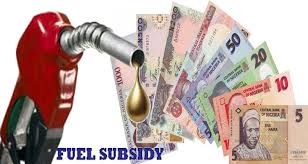
Oil Marketers Seek FG’s Clarification On Subsidy Removal Suspension
The Major Oil Marketers Association of Nigeria has said it is seeking clarification from the Federal Government on how the suspension of petrol subsidy removal will affect market operations.
The Federal Government had last week suspended its plan to remove fuel subsidy in June this year. It also proposed to extend the subsidy removal implementation period by 18 months, saying it would engage the legislature for the amendment of the Petroleum Industry Bill.
The government said the suspension of the plans to remove the subsidy followed consultations with stakeholders and was in line with the current economic realities in the country.
Buhari on 16th August 2021 signed the Petroleum Industry Bill into law after it was passed by both the Senate and the House of Representatives in July 2021.
The PIA is expected to boost investors’ confidence in the Petroleum Industry sector and create more employment opportunities for the populace in the host communities.
The Federal Government had claimed that it subsidizes petroleum consumption at the current N162 and N165 per litre as pump price to the tune of N3 trillion yearly.
The fuel subsidy regime in the country was supposed to come to an end in February, going by the PIA.
Read Also: FG Suspends Planned Subsidy Removal Indefinitely
The Chairman, MOMAN, Mr Olumide Adeosun, said on Monday that the decision to suspend petrol subsidy removal “does not bode well” for the petroleum downstream sector.
“The members of the association are currently seeking to consult with the Ministry of Petroleum Resources, the Nigerian Midstream and Downstream Petroleum Regulatory Authority and other industry stakeholders to understand exactly how this decision would impact the other provisions in the Petroleum Industry Act as well as market operations,” he said.
He recalled that the reforms contained in the PIA were a combination of several decades of engagement with internal and external stakeholders, capturing local and international best practices to encourage investments in the downstream sector, optimise costs, ensure transparency, and upgrade refineries, depots, pipelines, trucks, and filling stations.
